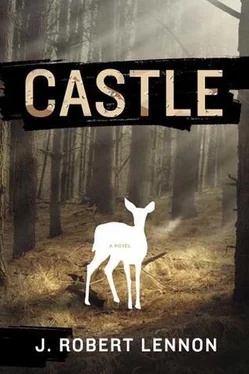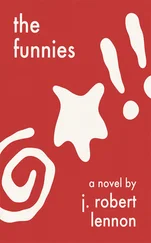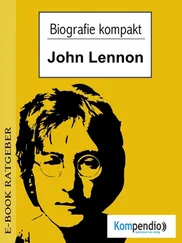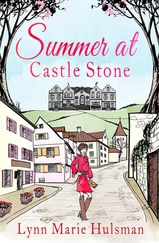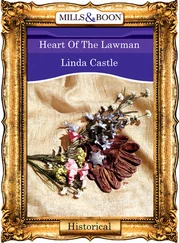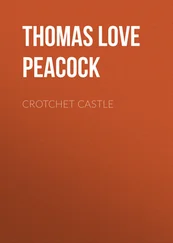Thus resolved, I was tempted to gather my supplies and leave for the woods at first light, but I knew better than to undertake a difficult task while under the influence of strong emotion. Instead, I sat down at the kitchen table and made a detailed list, based upon my previous expedition, of what I might need in order to ferret out and neutralize this threat. When I was through, I lay in bed until daylight in a futile effort to sleep; in any event, I was able to get a bit of uneasy rest. By 7:00 a.m. I was showered and behind the wheel of my car.
Spring was certainly in the air on this clear, breezy day. Though the temperature was barely above freezing when I left the hill, the sun had driven the thermometer to forty-five by the time I reached Milan, and as I walked into the grocery store I felt a balmy gust sweep in from the southwest. Without a doubt, today’s journey into the forest would be different — I knew the way in now, and I knew where to seek my quarry.
It was 8:00 a.m. by the time I had gathered what provisions I needed, and a quarter past when I reached the sporting goods store. The store didn’t open until 8:30, so I parked about a dozen spaces away from the entrance and waited.
A few minutes later, a dented Ford Taurus spotted with primer pulled up a few spaces closer to the store. The door opened and the sandy-haired gun counter clerk stepped out. She went to the entrance of the store, pulled a key ring from her pocket, and let herself in. A few minutes later, the other employees arrived as well, and a few minutes after that, one of them appeared at the door and unlocked it. A sliding panel in the plastic business-hours chart slid aside, revealing the word OPEN. I got out of my car and went in.
I walked slowly through the store, passing down almost every aisle, to make sure I hadn’t forgotten anything. In the clothing section, I chose a cap, shirt, jacket, and pants in forest camouflage. Then I approached the gun counter. In the glass case underneath it, I could see the Browning P-35 that I had chosen the week before. The clerk looked up with an expression of guarded friendliness, which dissolved into worry and discomfort as she recognized me.
“You remember me,” I said.
“Mr. Loesch, hello.”
“I’m surprised that I haven’t yet heard from you.”
She turned, pulled open a file drawer behind her, and removed a folder. “No, sorry,” she said, “I was going to call you today.” She placed the folder on the counter and opened it. “I’m afraid that you failed your background check.”
“That’s not possible,” I said.
“Well, that’s how it came back. I can’t sell you a firearm, sorry.” To her credit, she appeared frustrated and disappointed by the entire process, as though my rejection were a personal affront to her. Though this frustration seemed genuine, she was nevertheless still nervous in my presence. Perhaps she believed that I was a criminal.
“May I ask why?”
She shook her head. “I wish I could tell you. It just came back rejected, that’s all. We usually get some explanation, but not this time.”
“I have never been convicted of any violent crime or other felony.”
“I believe you. But the government says no, and we gotta listen to what the government says.”
The irony of hearing this from a private citizen was not lost on me, and I gave up the fight. “All right then,” I said. I took one last look at the Browning underneath the glass counter and walked away.
I did not, however, leave the store. Instead I went to the hunting section and began to examine the archery supplies. It was still early, and few customers had yet come in, so it was not long before a salesclerk approached me.
“Can I help you?”
It was, unfortunately, the arrogant young man whom I had lectured on climbing safety some weeks before Luckily, his self-absorption appeared to prevent him from recognizing me. I told him that I was in the market for a bow and some arrows, that I intended to use them to hunt large game.
Immediately the young man directed my attention to the crossbows and compound bows, with their complicated pulleys and cams. I quickly interrupted.
“I am looking for something compact and lightweight.”
He frowned. “Like, a shortbow?”
“Yes,” I replied, though I didn’t know the term.
“Hard to get close enough to a deer to kill it with a shortbow,” he said.
“I’d like to see some.”
With a sigh, he led me to a rack of compact, thin bows that appeared to be made of a composite of wood and fiberglass. They were precisely what I wanted.
“These, though,” the clerk said, “you wanna get any velocity out of them, you’re practically gonna give yourself a heart attack drawing them tight enough.”
“That’s none of your concern,” I said, hefting and stretching each bow. I settled upon the one that felt most supple without seeming to sacrifice tension. I held it up. “This one,” I said.
“Your funeral,” the clerk said.
I chose to ignore him. “Arrows,” I said. “I would like the arrows that would be the most lethal at low velocity.”
This comment appeared to satisfy him, at least temporarily. He nodded. “You want something that’ll take a broadhead and fly straight,” he said. He showed me a package of four arrows tipped by a quartet of razor-sharp blades, and accompanied by a collapsible nylon quiver with a shoulder strap and reinforced floor. “You’ll get a nice, clean kill from these, if you can get close enough.” He pointed to the opposite end of the arrows. “Helix fletching, turkey feathers. They’ll fly straight and true. Aluminum shaft, nice and lightweight, and pretty easy to bend back in shape, if they get bent.”
“Fine. I’ll take them.”
“Great. Let me show you some sights for that thing, it’ll help you a lot. Also you’ll want some targets to practice with, and—”
“No, thank you,” I said, and walked away.
I was back at the house by half past nine. The sun was full and bright now, and the temperature well into the fifties. I expected that it would be over sixty by noon, and though the woods would surely be colder, I was confident that my vigorous physical activity would keep me warm.
I was eager to embark on my mission, but first it was necessary to test my new weapon. I gathered up the bow and arrows and carried them into the yard, where I stood twenty yards back from the mound of earth where the deer was buried. The disturbed, clayey soil would be unlikely to dull the razor tips or deform the shafts. I first practiced drawing the bow and arrows from my quiver, which I had strapped over my right shoulder; next I nocked an arrow, raised and drew, then relaxed my fingers.
The arrow flew laser-straight, driving itself into the grass in front of the doe’s grave. The next was high, and disappeared in the weeds at the treeline. But the next two struck home, burying themselves eight inches into the soil, and I knew that this new weapon would be at least as effective, for my purposes, as any firearm. Indeed, the bow felt so good in my hands — light and strong and perfectly balanced — that I retrieved the arrows and shot them all again. This time, three hit home, and one fell a few inches short. The accuracy of the equipment was impressive, and while I would never win an archery competition, I was certainly capable of defending myself against an enemy. I was surprised to discover that I was glad to have failed the background check, for, as effective and useful a weapon as a handgun was, it could not compare to the tactile immediacy and visceral satisfaction of the bow. I was, to put it mildly, a convert. With the muscles of my fingers and upper arm pleasurably stinging, I gathered up my arrows once again and went inside to suit up for my mission.
Читать дальше
